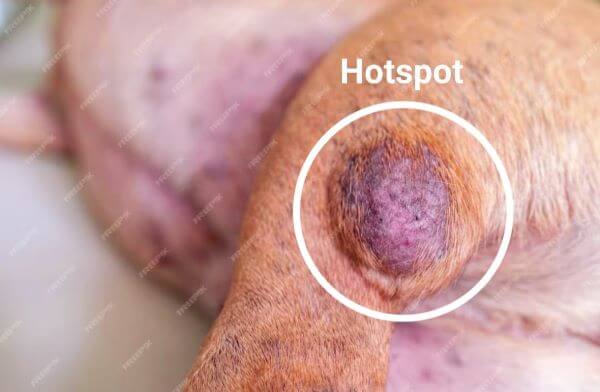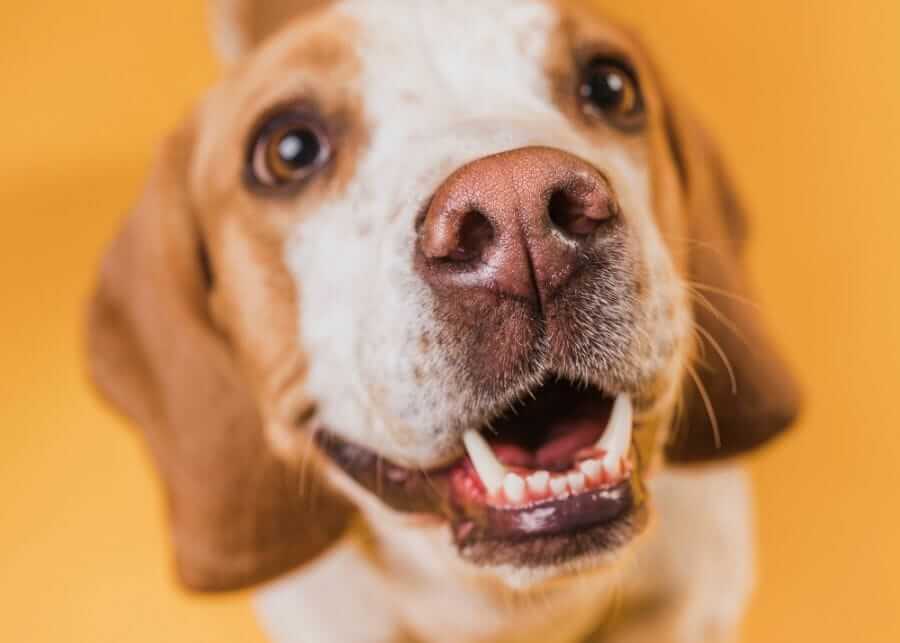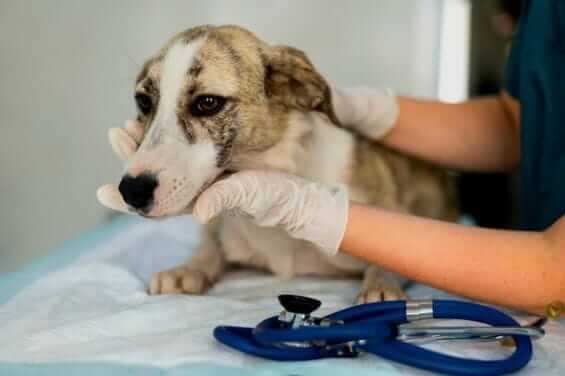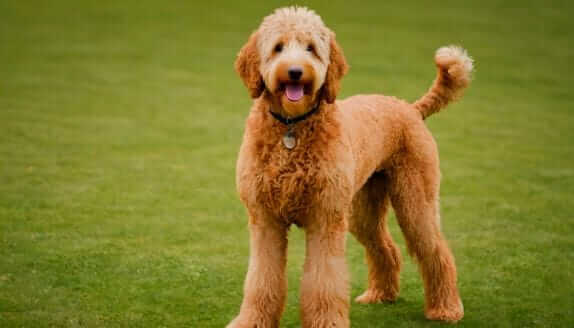Few things can ruin a loving moment with your furry friend as quickly as a blast of foul-smelling dog breath. Dogs’ bad breath can easily destroy the charm of play and cuddle time with your dog. While dogs with stinky breath may not be too concerned about the state of their oral hygiene, dog mouth odor can signal underlying health issues.
In this comprehensive guide, we’ll why dogs have bad breath. We will discuss the causes of bad dog breath and explore effective ways to prevent stinky breath in dogs.
What Are The Reasons For Stinky Breath In Dogs?
There could be a lot of causes for stinky breath in dogs. Some could be normal but some could be a sign of underlying health condition
Oral Hygiene and Periodontal Disease:
The main reason for bad breath in dogs is poor hygiene. Just like in humans, poor oral hygiene can lead to bad breath in dogs. Plaque and tartar buildup create a breeding ground for odor-causing bacteria.

If your dog isn’t a fan of chew toys or toothbrushes, plaque buildup can easily occur. Chew toys are designed to remove the buildups from teeth and gums. As time passes, this plaque buildup turns into periodontal disease. Periodontal disease causes many issues such as:
- Gum inflammation
- Cavities
- Tooth loss
- Dreadful breath.
Unpleasant Dietary Habits:
Dogs can be notorious scavengers[ feed on discarded or decaying matter], and their dietary choices can have a direct impact on their breath. Digging into the trash or indulging in decomposing leftovers can result in terrible dog breath.
Some dogs even have an addiction to cat poop. This behavior is known as coprophagia, which can make their breath truly disgusting.
Dry Mouth:
If the dog is not drinking enough water, it can cause dryness in the mouth. The dryness in mouth causes the bad breath in dogs.
Hormonal Imbalance:
Sometimes there are changes in hormones in dogs because of some issues. The change in hormones can lead to bad breath in dog.
Medications:
If your dog is on some medications, they are more likely to have bad dog breath.
Diabetes:
A sweet or fruity smell in your dog’s breath could indicate diabetes. It is a serious but treatable condition. If you notice this odor in your dog’s breath, consult your veterinarian immediately. Because diabetes can cause other severe problems such as increased thirst and urination problems.
Kidney Disease:
If your dog’s breath takes on a urine-like scent, it’s likely not because they’ve been drinking pee. This odor could be a warning sign of kidney disease, a condition that demands instant veterinary attention.
Liver Disease:
Truly foul breath, coupled with vomiting, loss of appetite, and yellowed gums, might point to liver problems. Immediate veterinary care is crucial in such cases.
Stinky Breath In Dogs Solution
Now that we’ve identified the causes, let’s explore how to eliminate that horrible dogs bad breath.

Professional Dental Cleaning:
If plaque, tartar, and periodontal disease are the reasons for dogs’ bad breath, consult your veterinarian for a dental cleaning.
This procedure involves removing loose or damaged teeth and addressing any other potential causes of bad breath. Before the cleaning, your vet will conduct bloodwork to ensure your dog can handle anesthesia.
Supervised Eating Habits:
To prevent your dog from eating trash and decomposing food, secure your trash cans. Also, prevent access to decomposing outdoor finds.
Place the litter box out of your dog’s reach. It can eliminate the temptation of cat feces. Regular cleanup after your dog can also discourage coprophagia.
Hydrating:
Provide your dog with a large amount of clean water. Make sure they drink water continuously. Drinking enough water will keep their mouths clean.
Treating Underlying Conditions:
For diabetes, kidney disease, and liver problems, seek veterinary treatment. Once the underlying issue is resolved, your dog’s bad breath should improve.
How To Prevent Stinky Breath In Dogs?
Prevention is always better than cure. Here’s how to keep your dog’s breath fresh and their overall health in check.
Regular Toothbrushing:
Brush your dog’s teeth regularly using dog-specific toothpaste. Avoid human toothpaste, as it may contain toxic ingredients like xylitol. These ingredients are safe for human beings but for dogs.

Chew Toys and Dental Treats:
Provide your dog with chew toys and dental treats suitable for their size and age. Chewing helps prevent plaque and tartar buildup while keeping your dog entertained.
Balanced Diet and Exercise:
Ensure your dog eats a balanced diet, exercises regularly, and receives routine check-ups from the veterinarian. These measures can help prevent systemic disorders like diabetes and maintain overall health.
Special Oral Health Products:
Consider using oral health diets, dental chews, or water additives recommended by your veterinarian.
Home Remedies For Stinky Breath In A Dog
There are some home remedies for treating bad breath
Raw Bones:
Meaty raw bones are beneficial for your dog’s oral health because chewing promotes saliva production, which helps fight tooth decay. Opt for beef or lamb bones from a local butcher or online sources.

Avoid cooked bones as they may splinter and harm your dog’s digestive tract.
Raw Fruits and Vegetables:
Offer your dog apples, carrots, broccoli, or celery stalks with a bit of peanut butter. Chewing these items helps remove tartar and plaque. Chop and deseed them if necessary, then add the pieces to your dog’s daily meals.
Parsley and Mint Leaves:
Kitchen herbs like fresh parsley and mint leaves are effective natural remedies. Chop them finely and sprinkle over your dog’s food.
Alternatively, you can boil mint leaves in hot water, cool the mixture, and use it as a mouth spray for your dog’s teeth.
Yogurt:
If bad breath stems from digestive issues such as stomach, yogurt can help. Add unflavored yogurt as a post-meal treat or mix it directly into your dog’s food.

Additional Natural Remedies For Bad Breath Of Dogs
There are other home remedies you can try to get rid of stinky breath in dogs, such as:
- Adding a few drops of coconut oil to their food or water.
- Mixing apple cider vinegar into their food or water.
- Using cloves sparingly in their diet.
- Adding a small amount of lemon to their food or water.
When using these natural remedies, start with small quantities to determine what works best for your dog’s specific needs. Always prioritize your pet’s safety and well-being.
Conclusion
Don’t let bad dog breath come between you and your four-legged friend. Take action to address the underlying causes, maintain good oral hygiene, and consult your veterinarian for guidance.
With a little effort and care, you can eliminate that bad breath in dog and enjoy fresh, pleasant kisses from your furry companion once more. Your dog deserves nothing less than the best, freshest breath possible.
By following the advice in this comprehensive guide, you can ensure that your canine companion has sweet-smelling breath and enjoys excellent overall health. Remember, a happy, healthy dog makes for a happier owner too. So, embark on this journey to banish the stench and savor the joy of spending quality time with your beloved pup.
Did you enjoyed it? Do share your thoughts in comments section.





